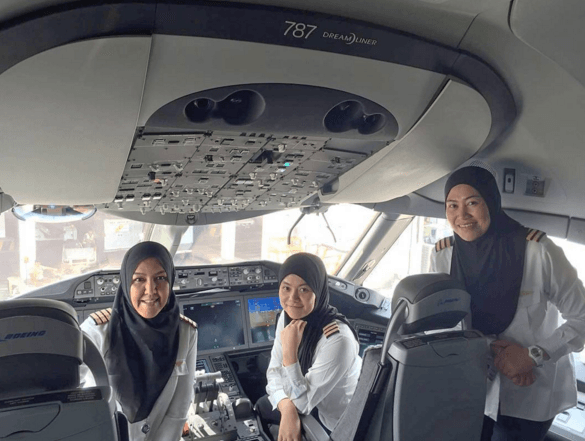
Most Westerners probably could not find find Brunei Darussalam on a map until a celebrity-led boycott launched two years ago in response to its sultan’s announcement that he would phase in Sharia law. That shift in policy has been described as largely anti-gay, though the reality is that its impact on women’s rights is far more chilling.
Otherwise, Brunei largely is under the radar as is not the easiest place to find. Wedged between two Malaysian states on the island of Borneo, this country of 400,000 people is listed by Forbes as the fifth richest nation on earth thanks to its generous reserves of oil and gas. Independent for only a little over 30 years, one company’s discovery of hydrocarbons sparked Brunei’s rapid development and moniker as the “Shell-fare state.”
And Brunei is not really thought of as a nation moving forward on women’s rights — if anything, the recent actions of Brunei’s royal family has set them backward. The World Economic Forum’s Global Gender Gap Index ranks Brunei as No. 88: wedged between Greece and Peru but higher than China, Japan and nations in the Middle East. The royal family’s shenanigans, from practically looting the country's treasury to flying in women only to treat them as high-end sex slaves, also have not put this country in the most positive light.
Which is why a recent Royal Brunei Flight to Jeddah, Saudi Arabia, was so eye-popping. Flight 81, a Boeing Dreamliner (787) piloted by an all-female crew, was in part to celebrate the nation’s 32nd anniversary of independence. But that milestone also reflects Royal Brunei’s aggressive campaign to recruit women pilots for its small but modern fleet of 10 jetliners that fly the skies between Australia and Europe.
Royal Brunei is offering scholarships in order to recruit citizens to join its Cadet Pilot Training program. Applicants need to be citizens of “His Majesty The Sultan and Yang Di Pertuan Negara Brunei Darussalam.” They must be between 18 and 26 years of age, bilingual in English and Malaysian, at least 5 feet 2 inches tall with a body mass index of less than 35, and meet some academic and security requirements.
Curiously, other than a page dedicated to this pilot training program, news on this program is only available on social media. The company does not broadcast such updates in its press release section, nor was this feat covered in the local English-speaking media — information in Malay-language media was also widely lacking.
Critics of Saudi Arabia’s human rights record will find the accomplishment of these three women ironic. Of course, many will be aghast at the fact that the women touched down one of the world’s most modern and largest aircraft in a country where they are still not permitted to drive. Not that all men necessarily have it good in Saudi Arabia either: Single men are banned from many shopping malls, a stifling restriction since life in the Gulf states revolves around these temples of retail commerce. Women may reply that such family-only facilities, and now even more women-only venues, are a welcome salve in a nation where women have become increasingly more restless from feeling confined in their homes. The result has been a bizarre trend where young men will offer to pay girls or women up to $25 (100 Saudi riyal) for the privilege of getting passed off as their “cousins.”
And while Brunei’s government can spin its pilot training program as a step up for women, Saudi Arabia’s human rights record has many of its opponents up in arms. Backdoor maneuvering that allowed Saudi Arabia to chair an influential panel within the United Nations’ Human Rights commission, in the eyes of the kingdom’s critics, stained the U.N.’s reputation at a time when the current secretary-general has been outspoken on issues ranging from climate change to gay rights.
But for a profession that is about 95 percent men, the achievement of Captain Sharifah Czarena, Senior First Officer Dk Nadiah and Senior First Officer Sariana Nordin represents three new cracks in the aviation industry’s sky-high glass ceiling.
Image credit: Royal Brunei Air (Instagram)

Leon Kaye has written for 3p since 2010 and become executive editor in 2018. His previous work includes writing for the Guardian as well as other online and print publications. In addition, he's worked in sales executive roles within technology and financial research companies, as well as for a public relations firm, for which he consulted with one of the globe’s leading sustainability initiatives. Currently living in Central California, he’s traveled to 70-plus countries and has lived and worked in South Korea, the United Arab Emirates and Uruguay.
Leon’s an alum of Fresno State, the University of Maryland, Baltimore County and the University of Southern California's Marshall Business School. He enjoys traveling abroad as well as exploring California’s Central Coast and the Sierra Nevadas.














